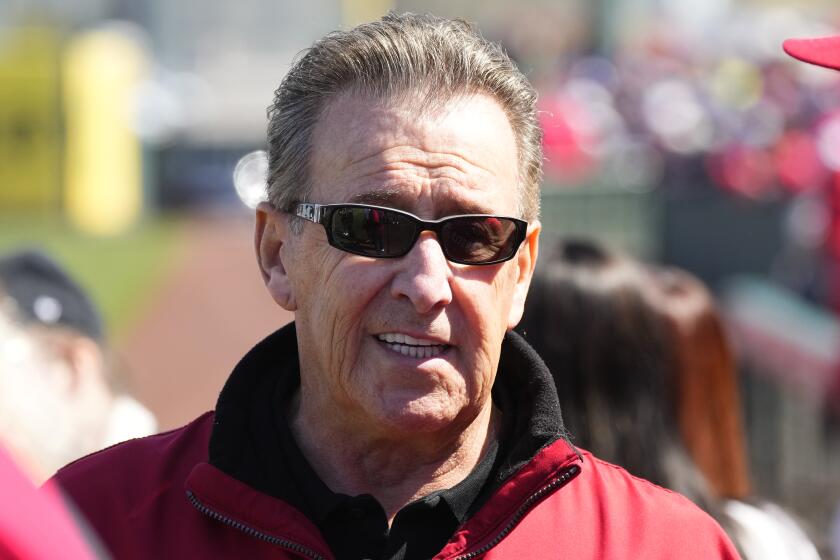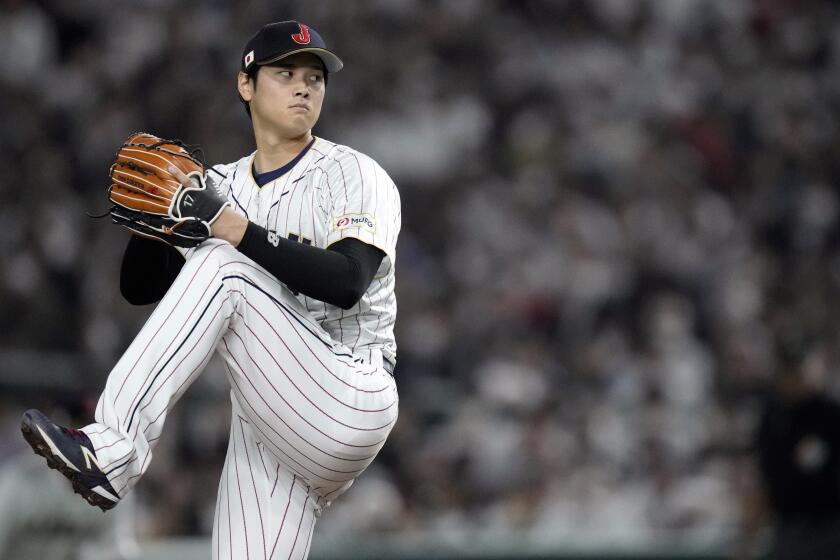Column: The first two stadium deals collapsed. Why would the Angels and Anaheim try again?
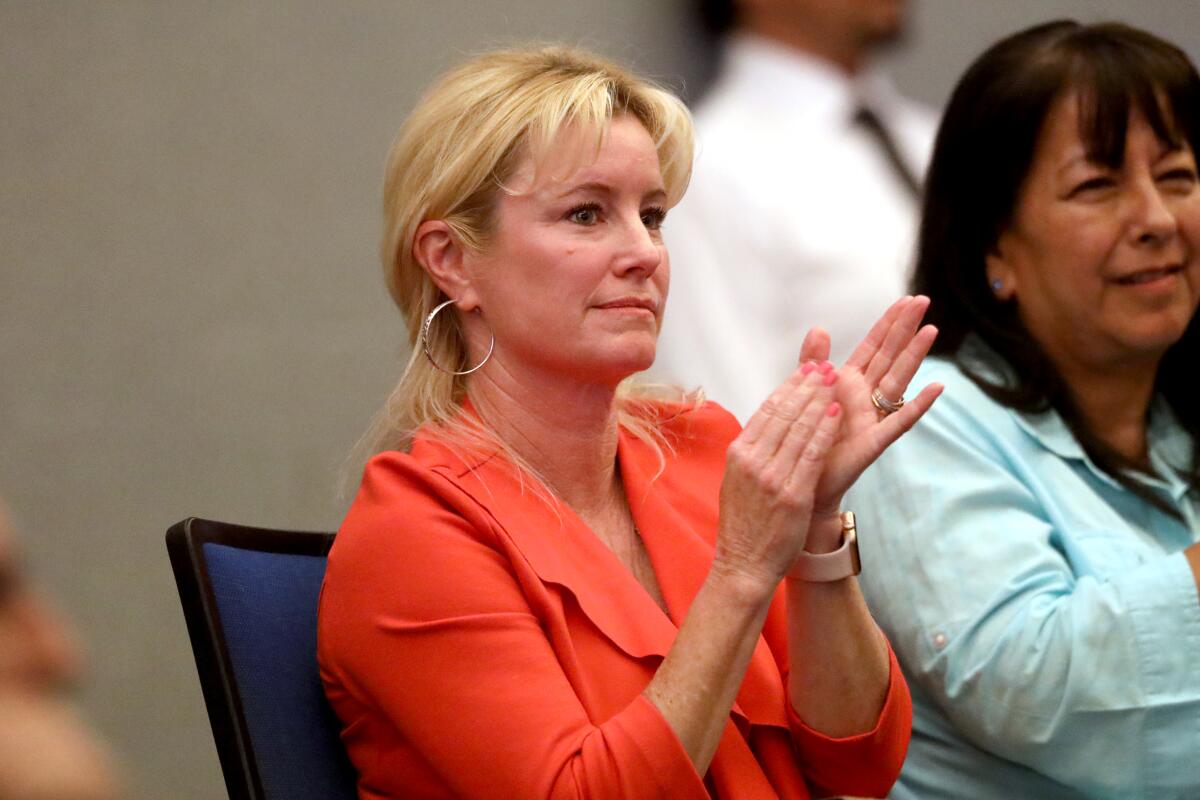
- Share via
The Curse of Harry Sidhu was born on May 24, 2022. That was the day the Anaheim City Council unanimously voted to kill a deal that would have anchored the Angels in town for decades and allowed their owner to build an urban village around Angel Stadium.
An FBI agent had claimed Sidhu, the former mayor of Anaheim, handed city secrets to the Angels in the hope of securing a million-dollar campaign contribution from them. The stench of corruption — even as Sidhu denied the allegation — rendered the deal too toxic to proceed.
The Angels lost their next 14 games, the longest losing streak in the 63-year history of the franchise. They fired their manager. They finished 33 games out of first place.
Angels owner Arte Moreno broke years of silence, telling Sports Illustrated why he decided not to sell the team, his plans for Shohei Ohtani and more.
That might be amusing. This is not: This is the year the Curse of Harry Sidhu truly starts to take its toll on Anaheim.
On Saturday, Angels owner Arte Moreno said he planned to meet with the new Anaheim mayor, Ashleigh Aitken, within the next few weeks. He declined to say whether he would consider a third round of stadium negotiations with a city that twice within the past decade told him he had a deal.
“They have a new administration,” Moreno told reporters in Arizona. “And we’re going to work with that administration. We’ve been there a long time. And we’ll see what happens.”
Moreno has all the leverage, thanks to Sidhu.
On the other side of the 57 Freeway, the Ducks’ owners are about to break ground on a neighborhood surrounding the Honda Center with restaurants, shops, concert halls, parks, homes and offices. It’s a short walk across Katella Avenue from there to Angel Stadium. Angels fans could enjoy that stadium village, even if Moreno builds nothing in the Angel Stadium parking lot.
He is under no obligation to do anything, even as the city covets development and tax revenue from a parking lot the city itself has failed to develop for more than half a century. Sidhu hurriedly pushed the city council to reinstate the Angels’ lease as a Plan B if negotiations for Moreno to buy the land collapsed, but neither the mayor nor the city’s public statements shared that with Anaheim residents.
Had Sidhu not offered that insurance to the Angels, the city would have had the hammer, because the lease would have run out. Instead, the city is now faced with a team permitted to decide whether the lease ends in 2029, 2032,2035, or 2038, and thus empowered to restrict the city’s ability to build on the site for another 15 years.
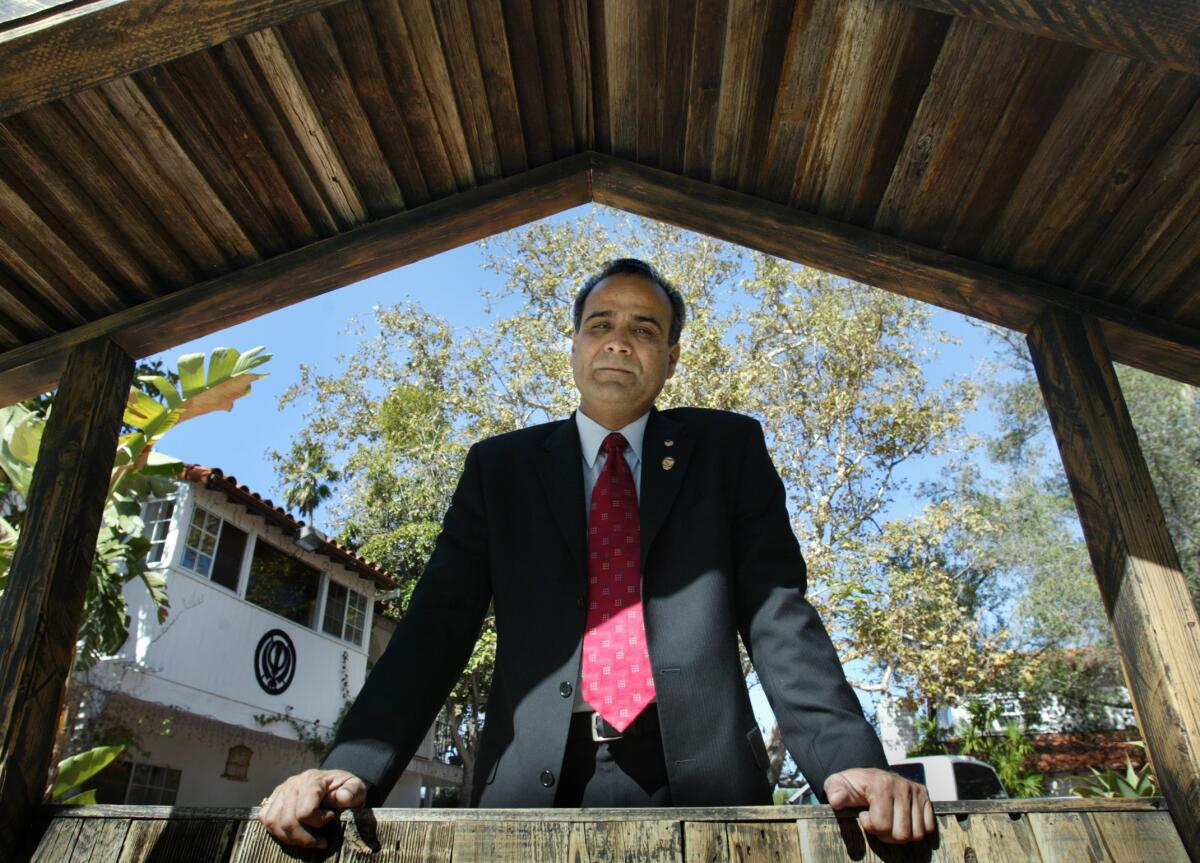
For Anaheim, that would appear to be the worst of both worlds: The city has to wait for Moreno to decide what to do with its prize parcel of real estate; and Moreno still could move the team, or sell to someone else who would.
“I can’t imagine a future in Anaheim without the Angels,” Aitken told The Times. “As a lifelong fan and season-ticket holder, I think they’re an important part of our history and our city. I think we can craft a deal that is mutually beneficial to the residents and taxpayers of Anaheim, and to the Angels.”
The political environment could be turbulent. In April, the city plans to hire a firm to evaluate the condition of the 58-year-old stadium and provide recommendations for upkeep and upgrades, after which the council and the Angels might spar over whom should pay for the hundreds of millions in costs.
After the collapse of the stadium deal last year, amid the FBI probe that generated the allegations against Sidhu and fraud convictions against the president of the Anaheim chamber of commerce, the city commissioned an independent investigation. One of the investigators told the city council last month he suspected “more indictments will be coming in the coming months.”
The city also faces continued stadium-related litigation over alleged violations of the Brown Act, which demands the public’s business be done in the public. An Orange County grand jury report said the city “betrayed its constituents” through “persistent lack of transparency and rushed decision-making in its handling of the stadium property transactions.”
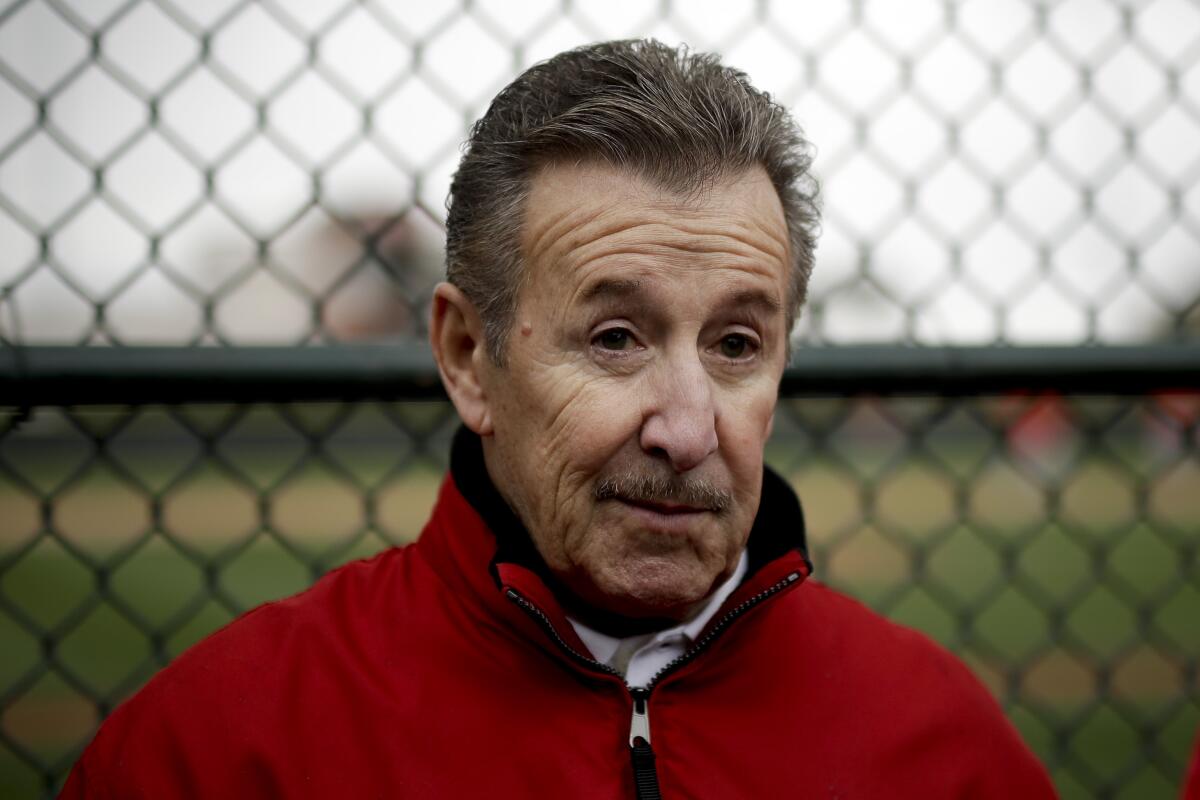
Those are a lot of complications. There would be many more if the city and the Angels started negotiations from scratch. Perhaps the city ought to put the deal that died last year back on the table, this time with transparency, and with public hearings that inform the council rather than just fill time before a preordained vote.
As a candidate, Aitken called that agreement “a corrupt, no-bid deal.”
Nevertheless, the dead deal would have accomplished a raft of city objectives.
The city would have been out of the stadium business, in which it was not making money. The Angels would have picked up the costs of renovating the stadium, or building a new one. The city would have generated a projected $652 million in tax revenue over 30 years from development, the costs of which would be borne by Moreno and/or development partners. The Angels would have pledged to play in Anaheim through 2050. The city would have gained more than 6,000 new homes.
And, after the city agreed to sell land valued at $325 million to Moreno for $150 million, Moreno later agreed to pay $96 million toward the construction of affordable housing elsewhere in Anaheim.
Shohei Ohtani told Japanese media that he would be available only to pitch out of the bullpen in the WBC final should Japan beat Mexico in the semifinals.
Aitken said she was “not committed” to that plan, although she said she would be willing to consider it as a basis to start talks with the Angels.
“I will be very happy to talk to them and do a current analysis of the deal and see,” she said. “I bet we have more common ground than we disagree on.”
Aitken, like Moreno, said the focus for now should be on opening day. The mayor said she has not missed a home opener in decades, and she is excited about the Angels’ April 7 game.
“I’m a season-ticket holder,” she said. “Don’t look for me in the suite.”
More to Read
Go beyond the scoreboard
Get the latest on L.A.'s teams in the daily Sports Report newsletter.
You may occasionally receive promotional content from the Los Angeles Times.

